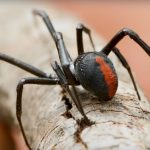Ants are one of the most common insects in North America. However, when do ants hibernate? The answer depends on where you live! Some areas have cold winters that cause the ground to freeze solid when ants head into their underground homes for hibernation. Ants living in warmer climates don’t need to worry about hibernating because they can stay active all year long.
| Behavior | Description |
|---|---|
| Hibernation | Ant colonies enter a state of hibernation during the winter, slowing down their metabolism and activity levels. |
| Food storage | Ants gather and store food for the colony to use during the winter months. |
| Nest maintenance | Ants work to maintain and repair their nest to prepare for the winter. |
| Queen ant | The queen ant stops laying eggs during the winter and focuses on staying warm and healthy. |
| Worker ants | Worker ants may die off during the winter, but the colony will have a new generation of ants in the spring. |
| Colony size | Ant colonies may shrink in size during the winter due to a lack of food and increased mortality. |
How Ants Survive the Winter?
Contents
Ants are insects that live in colonies. The colony may consist of more than 20,000 individuals during the summer months. Ants are social creatures and communicate using pheromones to coordinate their behavior on various activities, including foraging, territorial defense, emigration from old nests, or swarming to new ones.
Ants can also be essential predators on other arthropods and small invertebrates while they are preyed upon by various animals such as spiders, centipedes, and even some birds.
How Long do Ants Hibernate for?
Most people don’t know when ants hibernate, but they do. Ants hibernate in the wintertime and can go for a long while without food or water because their bodies can slow down their metabolism.
Most ants live in warm climates, so they typically only need to hibernate during the coldest months of the year. In fact, some species may only be dormant for a few weeks at most, while others can stay dormant all winter long. It takes less energy for an ant to find food when it’s warmer outside, and that means that if there is a really severe winter with lots of snowfall, then your colony of ants will have more trouble finding enough food to survive on, which can lead to many ants dying.
What do Ants do During the Winter Months?
Ants are cold-blooded insects, which means they can’t regulate their own body temperature. As a result, ants hibernate like many other animals but migrate to warmer climates or go into suspended animation until spring arrives. Ants typically live for about 6 months during the summer and 12 months during the winter because of this migration pattern.
Some ants will enter an inactive state called diapause when environmental conditions, such as dryness or frigid temperatures become unfavorable. These species include fire ants and carpenter ants; these varieties of ants will remain dormant until favorable conditions return to their environment. Fire ant colonies may even relocate underground if it is too hot outside!
Where do Ants go in the winter?
Ants are well-known for their perseverance and ability to scavenge. But in the winter, ants must find a way to survive when there is no food or water available. They can do this by going into hibernation until spring comes again.
Ants don’t have to be taught how to go into hibernation; they know what needs to happen instinctively. When cold weather arrives, many ants will crawl down into cracks or holes to curl up tightly and wait out the long winter season. The cold temperature slows their heart rate and breathing which helps them conserve energy while waiting for warmer weather.
Under large rocks
Ants are often found under large rocks, but do they hibernate?
Ants are typically active all year long. They go dormant in the winter to escape cold temperatures and lack of food supply. During this time, ants can also be seen clustering together for warmth or seeking shelter underground where it is warmer. A few species migrate southward with temperature changes, while others remain active throughout the colder months.
Under tree bark
Under tree bark, the ants are safe from winter’s cold.
They live in a dark nest under the ground and wait for spring to come back around. Ants have some of the worst winters on Earth. They can’t fly or swim or burrow underground like other animals do when it gets cold outside, so they stay put until spring comes round again, which is about six months long in their case!
Underground
Ants go underground when the temperature drops. If you live in a cold climate, it’s essential to understand how ants are affected by winter weather. Ants can’t survive below about 18° F for any time, so they need shelter from the cold during the colder months. They enter hibernation mode, and their metabolism slows down dramatically, allowing them to survive until springtime arrives.
This is called aestivation or hypothermia–the ant equivalent of your body’s process of slowing its systems down at night to conserve energy while you sleep. The exact processes that allow an insect’s metabolism to slow down aren’t well understood, but it has been shown that some insects have genetic differences which control their response to temperature changes.
In your home
Many insects hibernate in your home, including ants. Ants spend the winter underground and come out when it is warm again. They need a place to go inside during the winter months because they can’t survive prolonged periods of cold temperatures. Your home provides shelter from the elements and allows them to maintain their colony life cycle for up to seven years or more.
A colony of ants always has one queen ant who lives her entire life underground with them and never leaves. She lays eggs throughout her lifetime, which means ant populations grow fast and stay steady year-round without any natural disasters affecting their numbers like other creatures do, such as bears or deer populations dwindling due to weather conditions or lack of food sources available hunters in some areas.
FAQs
What Happens To Ants Come Springtime?
When do ants hibernate? When the temperature starts to drop, they go into winter mode. They will freeze if there is no food around, so they start storing up energy for the coming months of cold weather by eating as much as possible and storing it in their bodies.
As winter approaches, they enter a state called diapause, where most of them stop moving around and just stay put until springtime arrives. Once that happens, they come back out of diapause and head outside again once they find some food.
What Is Ant Diapause?
Ants are one of the most diverse and successful groups of insects on Earth, and they can be found in virtually any terrestrial habitat. They come to us bearing essential lessons about how we might protect our own environment. For example, ants will often hibernate during harsh winter conditions when food is scarce. The trick is that they only do this when there’s sufficient energy stored up from summer for them to survive.
It was long thought that ant colonies would sacrifice many of their workers by sending them into diapause (a state similar to hibernation). Still, recent research has shown this isn’t true: it’s actually more like an emergency response where all members start producing emergency foods such as honeydew and fungus, so they have enough energy to survive. So the next time you’re cursing an ant for raiding your picnic, just be grateful that they know when to hunker down and ride out the tough times!
Why Got Carpenter Ants In House?
Carpenter ants are a common household pest. They were named for their ability to chew through wood, which they use as food. They’ve been found in homes worldwide and have been linked to damage to structures such as houses. Carpenter ants usually enter a home from the ground or from trees that touch the house, often by following electrical lines into walls. The best way to get rid of them is to call an exterminator who will be able to find where they’re coming in and seal up any holes or cracks so they can’t come back inside your home again!


